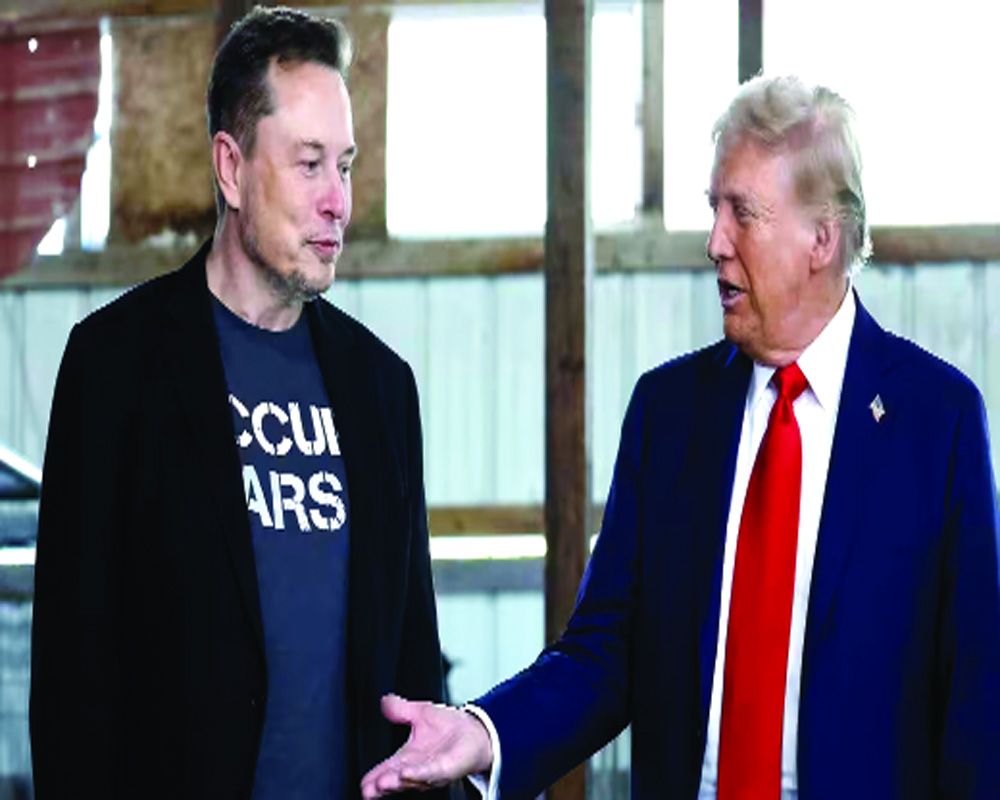Title: Trump's Resurgence and Global Alliances: A New Era of Business and Politics Intertwine

Alayaran.com, International News Desk
In a world where the line between business and politics often blurs, the resurgence of former U.S. President Donald Trump post-2020 elections highlights a strategic playbook not unfamiliar in the annals of history. Trump, once underestimated and sidelined, has leveraged his defeat into a narrative of powerful political comeback, largely through alliances that could redefine global power dynamics.
One of the most talked-about relationships is Trump's connection with Russian President Vladimir Putin. Observers note similarities to historical political alliances, suggesting that Trump's interactions with Putin could be seen as a strategic maneuver in a game of global chess, potentially steering towards a new world order with autocratic undertones.
Adding a layer of complexity to Trump's political strategy is his outreach to the Hindu community worldwide. During Diwali, Trump pledged to protect Hindus, positioning himself as a savior figure, contrasting with India's Prime Minister Narendra Modi's role. This promise, while seen by some as symbolic, underscores Trump's understanding of the importance of geopolitical alliances in today's world.
The geopolitical landscape is further complicated by the strained relations between India and Canada. Prime Minister Justin Trudeau's administration has been perceived as taking stances against India, particularly amidst allegations of supporting Sikh extremism. This could potentially destabilize India's internal security, especially if it leads to a resurgence of Sikh militancy with possible covert support from Pakistan.
This scenario echoes historical patterns where business magnates like Henry Ford aligned with controversial political figures for mutual benefit. Ford, known for his admiration of Adolf Hitler, saw his company, Ford-Werke, prosper under Nazi Germany. Fast forward to the present, and similar dynamics are observable with tech mogul Elon Musk's vocal support for Trump. Musk's endorsement isn't merely ideological but strategically aligns with his business interests, promoting deregulation and free markets, much like Ford's pragmatic alliances.
Musk's recent acquisition of Twitter, rebranded as X, and his use of the platform to influence political discourse, mirrors Ford's use of his business influence to shape public perception. Both figures understand the power of personal branding and controversy in the political arena.
The intertwining of business and politics raises critical questions about the impact on democratic institutions. Historical precedents like Ford's support for Hitler have shown how such alliances can contribute to the rise of authoritarian regimes. Today, with Trump's alliances and Musk's strategic endorsements, the global community watches closely to see if history might repeat itself, potentially threatening democratic stability.
As these dynamics unfold, the world braces for a future where the actions of influential business leaders could significantly alter the geopolitical landscape, echoing the transformative power of their historical counterparts.
Disclaimer: The views expressed in this article are those of the writer, an associate professor, and do not necessarily reflect the views of Alayaran.com.
